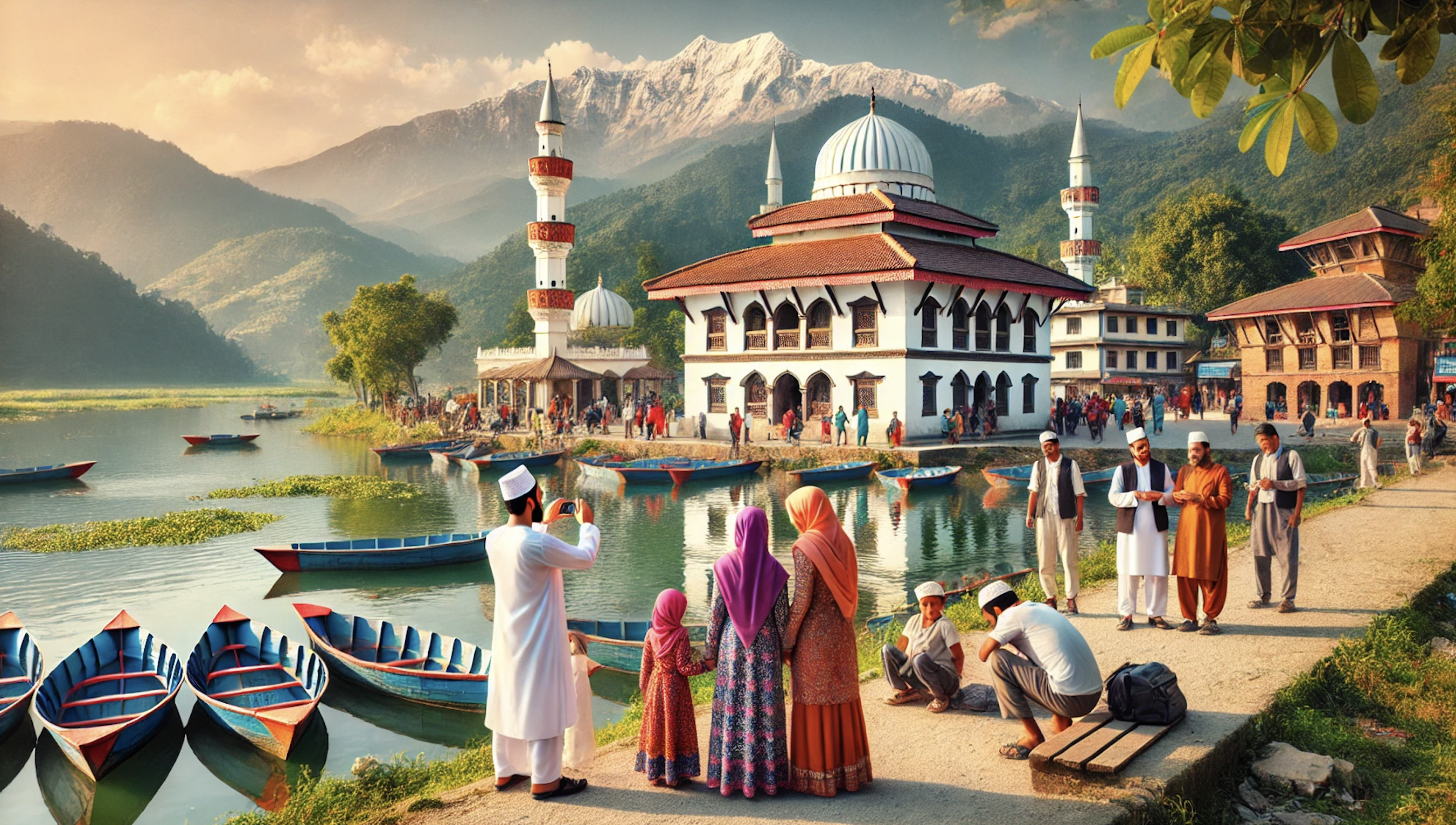Nepal, renowned for its breathtaking landscapes, rich cultural heritage, and warm hospitality, is increasingly recognizing the potential of Muslim tourism. With a growing number of Muslim travelers seeking unique and Halal-friendly destinations, Nepal has an opportunity to position itself as a welcoming hub for this demographic. By understanding and addressing the specific needs of Muslim tourists, Nepal can tap into a lucrative market while promoting cultural exchange.
Here are some key aspects of Muslim tourism in Nepal:
Halal Food Options: Access to Halal-certified food is a priority for Muslim travelers. In recent years, several restaurants in Kathmandu, Pokhara, and other major cities have started offering Halal dishes. Additionally, local Muslim communities can guide visitors to authentic Halal eateries.
Prayer Facilities: Nepal hosts several mosques and Islamic centers, such as the Kashmiri Mosque in Kathmandu, which cater to the spiritual needs of Muslim tourists. Hotels and resorts can further enhance the experience by providing prayer mats and information on Qibla direction.
Islamic Heritage: Nepal’s Islamic heritage, though lesser-known, is rich and significant. Visiting historic mosques and interacting with local Muslim communities offer travelers a unique cultural experience.
Natural and Spiritual Appeal: Nepal’s serene environment and scenic beauty provide a peaceful retreat for travelers. For those seeking modest and family-oriented activities, trekking routes, mountain views, and lakes like Phewa and Rara offer ideal options.
Strategies to Attract Muslim Tourists
To establish itself as a Muslim-friendly destination, Nepal can adopt the following strategies:
Halal Certification: Partnering with international and local Halal certification bodies to ensure that food and services meet Muslim travelers' requirements.
Tailored Packages: Creating travel packages that include Halal dining, visits to mosques, and family-friendly activities.
Training Hospitality Staff: Providing cultural sensitivity training to hotel and restaurant staff to accommodate the unique needs of Muslim tourists.
Marketing and Awareness: Promoting Nepal as a Muslim-friendly destination through social media, travel fairs, and collaborations with Muslim travel influencers.
Infrastructure Development: Establishing more prayer rooms, Halal restaurants, and gender-segregated facilities to cater to Muslim travelers.
Opportunities and Challenges
Nepal’s proximity to countries with large Muslim populations, such as India, Bangladesh, and Malaysia, presents a significant opportunity. By leveraging its natural beauty and diverse culture, Nepal can attract Muslim tourists seeking adventure, spirituality, and cultural exploration.
However, challenges remain, including the need for more Halal-certified establishments, lack of awareness among local businesses, and limited marketing targeting Muslim travelers. Addressing these issues will require collaboration between the government, private sector, and local communities.
Muslim tourism in Nepal is an untapped opportunity that holds immense potential for economic growth and cultural exchange. By embracing inclusivity and addressing the needs of Muslim travelers, Nepal can position itself as a unique and welcoming destination. With its stunning landscapes, rich heritage, and growing Muslim-friendly infrastructure, Nepal is well-poised to become a favored choice for Muslim tourists worldwide.



